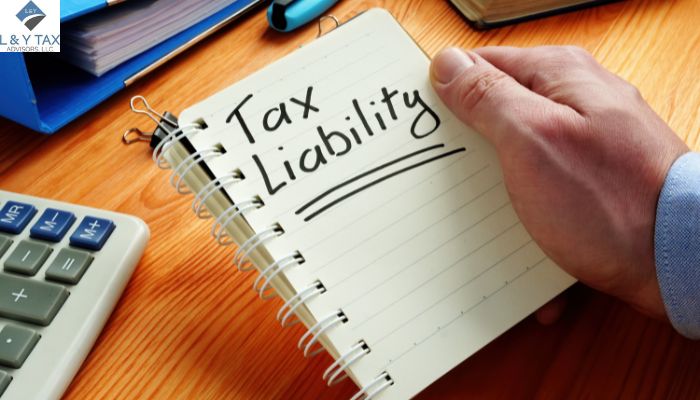
Record Keeping
If you’ve been working in the documentation and management sector for the past many years, you can relate to the loads of hustle when, back in time, record keeping used to be more of a headache than it can be today. Compiling and storing thousands of records manually was necessitated and required a lot more effort than you could ever imagine.
On the other hand, the public, or laypersons, must pay more attention to maintaining a separate source that serves as their record keeper. It may be because once the work is done, they don’t need to pile up the invoices or random receipts and may be subjected to disposal or misplacement.
Record Supervision in Tax Landscape
In taxation, record keeping refers to the sustenance of documented information, including every tax return and supporting forms. Your folders should comprise W-2s, 1099s, mileage logs, expense tracking, records supporting itemized deductions, and other miscellaneous yet informative documents. No matter how pointless they feel, you never know the hard times that demand the availability of even minor receipts where your practice of tax record proves to be a blessing in disguise.
For instance, reliable, QuickBooks & Bookkeeping Services for both small and sturdy businesses are watchful eyes to keep record of the wealth moving in and out of your corporation to ensure a perfect alignment between the financial levels in bank accounts and accounting software.
How to Maintain Financial Records?
Our digitalized world must be appreciated for it has alleviated the burden of manual tax record keeping in the form of electronic records, typically abbreviated as e-records. However, both methods are essential for efficient record management.
Manual Record Keeping
Specific disciplines need to be followed that require expertise in a variety of forms:
1. Record Identification
Legal records need to be authenticated. For instance, forensic experts should determine that the presented document isn’t under criminalization and the paper doesn’t demonstrate any missing content, damage, or alteration. Extreme cases require microscopic examinations, x-rays, and even chemical analysis.
2. Record Storage
Records must be kept and ensured to be accessible yet stored in the safest place. If you’re wondering how long do tax preparers have to keep records, the usual duration is at least three years. However, being a taxpayer and depending on your financial record history, it is recommended to keep taxation and relevant documents for specific years.
For example, maintain your records for at least three years if all your income is timely reported without fraudulent activities. You’ve previously filed for a tax return, and you succeeded.
In addition, the places or rooms allotted for professional record keeping must maintain temperature and humidity levels and secure their integrity in a disaster-resistant or fire-proof vault.
Click here to read ‘Do large companies use QuickBooks?’
3. Record Retrieval
Appropriate and convenient record retrieval is mandatory for the enterprises to establish so they are easily accessible to serve the purpose of audit or litigation.
In contrast, digital records can be complicated if they are not adequately tagged or categorized for easy discovery.
4. Record Circulation
Record circulation refers to tracking a document temporarily away from its normal storage area. This process is handled manually by writing the recording procedure or utilizing the technologies such as barcode scanners or radio-frequency identification (RFID).
5. Record Disposal
Hearing the word ‘disposal’ might sound a bit odd because the destination of records isn’t subjected to dustbins. Record disposal generally refers to transferring documents to historical archives, such as museums, or offered to an individual as a private asset.
The process of record discarding must be obliged to the state’s regulations. Most organizations adopt the methods of paper shredding or pulverization to dispose of the oldest records.
Digital Record Keeping
Digital or electronic tax records are automated and computer-based software versions of documents. Taxation agencies, such as the Internal Revenue Service (IRS), require the maintenance of both physical and digital records to keep an accurate check and balance of the financial activities of businesses.

For example, many organizations maintain their manual records by availing the services of full charge bookkeeping because the professionals are adept in tracking accounts payable and receivable, processing payrolls, and preparing financial statements.
How long to keep tax records?
Depending on the nature and circumstances surrounding your tax records, their length varies widely. As an overall rule, however, we recommend keeping them for at least three to seven years (this timeline takes into account IRS audit statute of limitation dates that typically range from three to six years after filing your return), adding another year may provide extra insurance in case there are discrepancies or inquiries from authorities.
However, this rule has some exceptions; for instance if filing a claim related to worthless securities or bad debt deduction should maintain records for seven years; similarly if failing to disclose income that should have been reported is over 25% of gross income then six year statute of limitation apply.
Certain records, such as those related to property ownership, investments and retirement accounts should be retained until either you dispose of an asset and report its sale on your tax return, or report the transaction for record keeping purposes.
Maintaining accurate and organized tax records is vitally important to supporting any claims and deductions on your tax return, and providing documentation in case of audit by tax authorities.
The records life-cycle consists of discrete phases covering the life span of a record from its creation to its final disposition. In the creation phase, records growth is expounded by modern electronic systems. Records will continue to be created and captured by the organization at an explosive rate as it conducts the business of the organization. Correspondence regarding a product failure is written for internal leadership, financial statements and reports are generated for public and regulatory scrutiny, the old corporate logo is retired, and a new one – including color scheme and approved corporate font – takes its place in the organization’s history.
Final Wrap Up
Summing up the content, record keeper is maintaining and storing an organized file comprising all sorts of documents, such as bills, invoices, and other receipts, according to the category in which they fall. For example, a student can keep all his academic records in a separate folder or follow the courses he’s studying – English notes in an English file and mathematics notes in a mathematics organizer. However, financial management isn’t as easy as it sounds because both mediums are subjected to human error. Therefore, you must be a number knack and proficient in accounting to avoid mistakes in manual and automated record organization and management.


